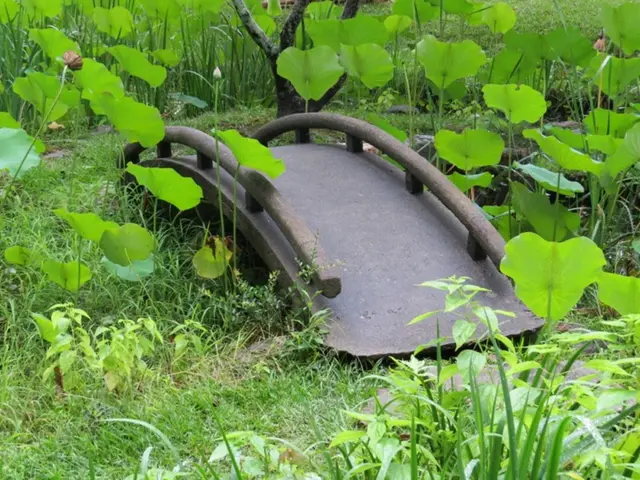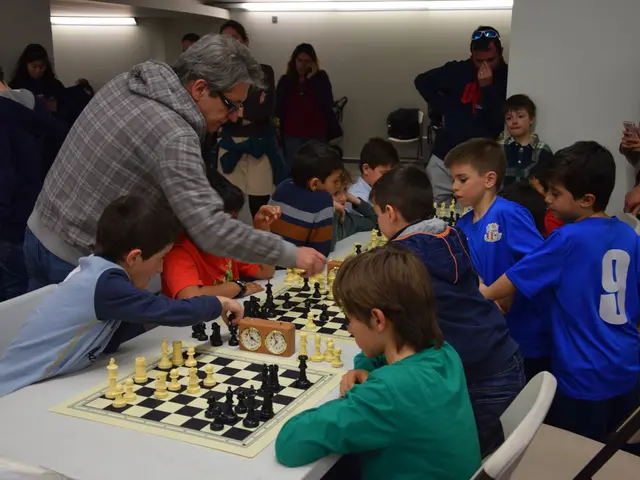Revitalizing Saxony-Anhalt's Craftsmen: A Snapshot
- Approximately 260 fresh artisans join Saxony-Anhalt's skilled workforce.
Embracing the future, rooted in tradition
Last year, approximately 260 talented youngsters completed their apprenticeship in Saxony-Anhalt's craft industry, a number that falls short of replacing the seasoned masters who are hanging up their tools. This weekend, the Chamber of Crafts in Magdeburg will honor 114 new masters from eight trades, contrasting the 138 new masters in 2023. Declines in the metal and hairdressing sectors contrast with growing demand in the electrical and heating industries. The chamber is confident in maintaining stable numbers this year thanks to preparation courses at the master school. However, not all trades in Saxony-Anhalt offer a master apprenticeship opportunities.
Young Artisans Pave the Way
Unlike the Chamber of Crafts in Halle, which sees only annual fluctuations in the number of new masters, the award of master certificates has dipped slightly in 2022, from 148 in 2023 to around 120 this year. A noticeable trend arising from the data is that young people are entering master school earlier than ever before. master schools struggle under the weight of growing demand, particularly in the electrical engineering sector.
A Vanishing Guild
The number of businesses run by masters in trade-related roles has seen a significant decrease in recent years. The Chamber of Crafts in Magdeburg reported a decline of 235 businesses last year, following a decline of 195 in 2022 and 131 in 2020. While the decline is consistent across all trades, the decrease is not solely attributed to shortages in specific branches.
Aging Masters: Longevity Defying Tradition
It is difficult to accurately determine the number of masters leaving the profession, as not all masters start their own business or take over one. Fewer masters in employment are statistically recorded by the chamber. Masters in management and ownership roles are not subject to a fixed retirement age, with some still active beyond 70 years of age, as per Jens Schumann, deputy CEO of the Chamber of Crafts in Halle. Apart from the general trend mirroring population development, the state of Saxony-Anhalt offers incentives for young masters to cement their positions in the industry.
Empowering the Next Generation of Masters
Saxony-Anhalt supports new craftsmen who have completed their master apprenticeship with the "Master Bonus Plus" of 1,000 euros since August 2024. Ministerial data indicates that the program has garnered 308 applications and approved 349 as of the end of 2024. A rising number of applications, totaling 50, have been approved this year by the end of February. The initiative benefits not just craftsmen but also masters in the Chambers of Industry and Commerce or certified specialists. In addition to this, the state offers grants for new foundations or company takeovers to support young masters.
The Wishes of the Crafting Community
Attracting and nurturing talent is critical in the crafting sector. Burghard Grupe, CEO of the Chamber of Crafts in Magdeburg, emphasizes the importance of transparent vocational orientation in schools. The chambers of crafts advocate for investments in vocational training centers to cater to the growing demand in certain trades. Grupe also highlights the need for modern, customized master training programs. Jens Schumann of the Chamber of Crafts in Halle stresses the need for greater recognition of entrepreneurship, beginning with schooling and extending to the overall population. Both chambers support the state's provision of financial incentives for masters.
The Path Forward
To stem the decline in the crafting sector and ensure its survival, strategies may include:
- Implementing educational programs and apprenticeships focusing on traditional crafts that blend theoretical education with hands-on training.
- Providing financial support for young masters through funding and grants to establish businesses, continue education, or cover living expenses.
- Fostering networking opportunities through workshops, exhibitions, and conferences that connect newcomers with established industry professionals.
- Offering shared workspaces and equipment provision to reduce operating costs and facilitate easy access to resources.
While the state of Saxony-Anhalt has various schemes in place to assist young masters, a broader focus on its strategies would provide valuable insights into the future of the industry.
- By 2025, master artisans in EC countries, including Saxony-Anhalt, may benefit from the "Master Bonus Plus" program, offering a financial incentive of 1,000 euros to those who have completed their master apprenticeship.
- The Chamber of Crafts in Magdeburg, aiming to combat the declining number of craftsmen, is advocating for investments in vocational training centers, which cater to the growing demand in specific trades.
- As the demand for vocational training in sectors like electrical engineering increases, Magdeburg's master schools are struggling to accommodate the growing number of young people entering master school earlier than ever before.






